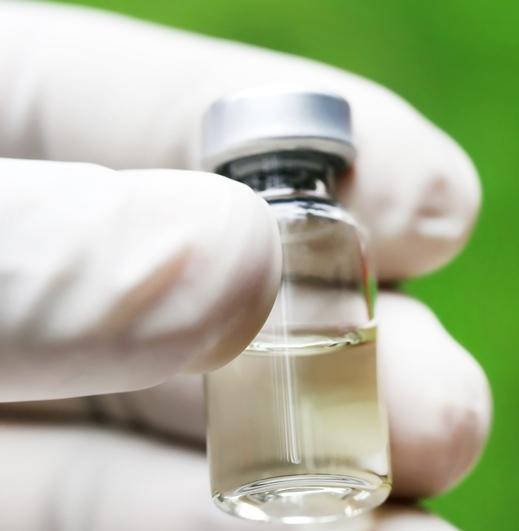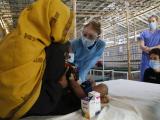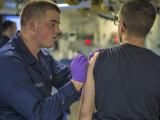US marshals on Aug 25 confiscated five vials of vaccinia virus vaccine, reserved only for military members and other people at high risk of smallpox, from a California clinic, part of an effort to prevent a company from using potentially dangerous and unproven treatments for cancer patients.
The Food and Drug Administration (FDA) said today in a statement that the treatments belonging to StemImmune, Inc., based in San Diego, were given to patients at the California Stem Cell Treatment Centers in Rancho Mirage and Beverly Hills.
Authorities seized five vaccina virus vaccine vials, each of which contained 100 doses. One vial was partially used, and the other four were still intact. Because the vaccine is not commercially available, the FDA said it has serious concerns about how StemImmune obtained the product and is actively investigating the circumstances.
FDA Commissioner Scott Gottlieb, MD, said in the statement, "Speaking as a cancer survivor, I know all too well the fear and anxiety the diagnosis of cancer can have on a patient and their loved ones and how tempting it can be to believe the audacious but ultimately hollow claims made by these kinds of unscrupulous clinics or others selling so-called cures." In the past, Gottlieb was successfully treated for Hodgkin's lymphoma, according to a May 10 report from the Los Angeles Times.
He added that the FDA won't allow companies to take advantage of vulnerable patients with no proof that the treatments work, especially when there are good medical reasons to believe that the treatments are harmful and could worsen a patient's condition.
Inspections led to confiscation
The seizure of the vials came after FDA inspections at StemImmune and California Stem Cell Treatment Centers found that the vaccinia vaccine was used to create an unapproved stem cell product, made from excess amounts of vaccine and stem cells derived from body fat. The combination was administered to cancer patients who had potentially compromised immune systems and for whom the vaccine could have triggered serious complications, including myocarditis and pericarditis.
According to the FDA, the unproven treatment was injected intravenously and directly into patients' tumors.
Besides the threat to cancer patients, people in close contact with those who have recently received the vaccinia virus vaccine—for example, pregnant women, people with weakened immunity, and those with certain skin conditions—can experience life-threatening complications after secondary infection.
Gottlieb said he has directed the FDA to vigorously investigate unscrupulous clinics using a full range of enforcement tools. "Our actions today should also be a warning to others who may be doing similar harm, we will take action to ensure Americans are not put at unnecessary risk." He also urged health providers, patients, and consumers to report similar activities and adverse reactions from such treatment to the FDA.
Three smallpox vaccines in stockpile
Smallpox was eradicated in 1980, but samples are kept in labs in the United States and Russia for research purposes, and there are concerns that samples that may exist elsewhere may be used for bioterrorism.
In the wake of the terrorist attacks of 2001, the United States has built up a stockpile of three smallpox vaccines: ACAM2000, Aventis Pasteur Smallpox Vaccine, and Imvammune. They contain live vaccinia virus, a cousin of the smallpox (variola) virus. The FDA statement didn't say what formulation was seized by the US marshals.
See also:
Aug 28 FDA news release
May 10 LA Times story


















